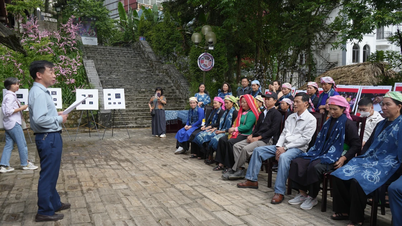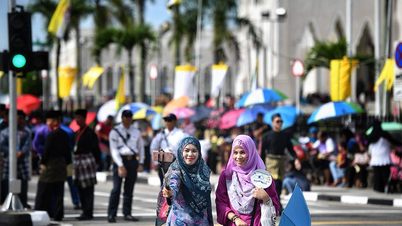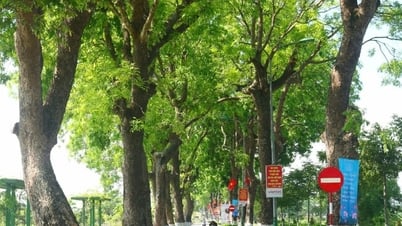According to the Korean Ministry of Health , the number of public health facilities that notified each local government of their closure on June 18 accounted for only about 4% of the total 36,371 facilities.

On June 18, when the Korean Medical Association (KMA) called for a nationwide medical strike, the situation at private hospitals and clinics in Korea did not seem to have much major disruption.
According to the Korean Ministry of Health , the number of public health facilities that notified each local government of their closure on June 18 accounted for only about 4% of the total 36,371 facilities.
Earlier, on June 17, about 55% of all medical professors at four major hospitals affiliated with Seoul National University began an indefinite strike, raising concerns about the operation of public health services.
However, for university hospitals, there is a phenomenon of professors taking leave in groups, but for the most part the situation continues as usual.
Specifically, Chonbuk National University Hospital said that about 10% of its 250 professors had requested leave and they had all notified the hospital to adjust their medical examination and treatment schedules.
Pusan National University Hospital has about 10 doctors on leave. Ulsan University Hospital, although the outpatient schedule has been adjusted due to the doctor's absence, is still crowded with patients as usual.
The South Korean Ministry of Health has issued a notice stating that it is illegal to cancel medical appointments without permission, while the Ministryof Education has sent a telegram to medical schools and announced a ban on mass absenteeism.
The Ministry of Education's dispatch clearly states that violations may be subject to disciplinary action depending on the severity. Along with that, the Ministry of Health requires private clinics that want to stop providing medical services to notify local authorities.
According to Yonhap news agency, on June 18, South Korean Health Minister Cho Kyoo-hong said that the government has asked community doctors who planned to strike on the same day to return to work, warning of legal consequences if they do not comply.
Minister Cho affirmed that if the strike causes medical facilities to stop operating, the ministry will conduct an investigation and take administrative sanctions, including suspending practice licenses in accordance with the law.
South Korea's medical stress began in February 2024 after the government announced plans to increase the medical school enrollment quota by 2,000 people starting in the 2025 academic year.
Since February this year, more than 12,000 South Korean medical residents and interns have not gone to hospitals to protest the government's plan to increase the number of medical students admitted, causing a severe medical crisis in the country.
Despite a wave of resignations by trainee doctors and protests from medical professors and many medical associations, the South Korean government completed its plan to increase medical school enrollment, but adjusted the increase to 1,500 people late last month in an effort to reconcile differences.
However, the medical community continued to increase pressure and called for a general strike on June 18, calling on community doctors and private medical facilities to join.
Source


![[Photo] Prime Minister Pham Minh Chinh and Prime Minister of the Kingdom of Thailand Paetongtarn Shinawatra attend the Vietnam-Thailand Business Forum 2025](https://vphoto.vietnam.vn/thumb/1200x675/vietnam/resource/IMAGE/2025/5/16/1cdfce54d25c48a68ae6fb9204f2171a)
























![[Photo] President Luong Cuong receives Prime Minister of the Kingdom of Thailand Paetongtarn Shinawatra](https://vphoto.vietnam.vn/thumb/1200x675/vietnam/resource/IMAGE/2025/5/16/52c73b27198a4e12bd6a903d1c218846)































































Comment (0)